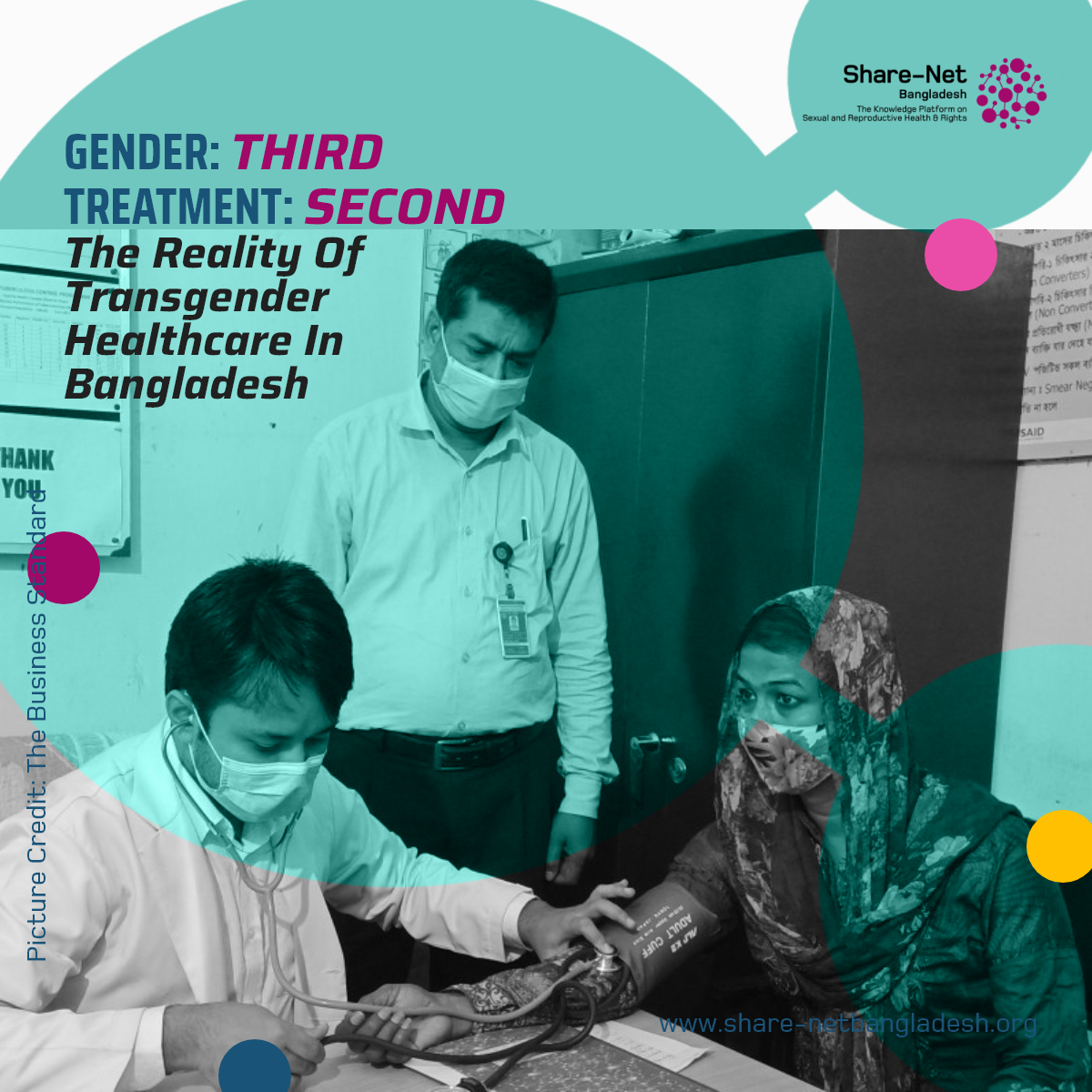Gender: Third; Treatment: Second – The Reality Of Transgender Healthcare In Bangladesh
In Bangladesh, the transgender and hijra community faces systemic barriers to healthcare access, reflecting a broader crisis of stigma and neglect. Despite being legally recognized as a “third gender” in 2013, members of this gender-diverse group continue to face harassment, discrimination, and inadequate medical services.
The healthcare system in Bangladesh lacks inclusivity in its infrastructure, policies, and training, leaving gender-diverse individuals in a precarious position when seeking care. Government hospitals, often the only option for low-income individuals, are particularly unwelcoming, with no designated queues or counters for transgender people. This forces them to navigate gender-specific systems that do not account for their unique identities, often leaving them without access to care.
Barriers Begin at the Entrance
From the moment transgender individuals enter a hospital, they are met with challenges. At the ticket counters, staff are often unsure of how to process their requests. With separate male and female lines, there is no provision for individuals identifying outside the binary genders. This structural oversight is not just a logistical issue but a reflection of a deeper societal failure to acknowledge and accommodate diverse gender identities.
Once inside, the challenges only increase. Shared wards, segregated by male and female categories, leave transgender individuals in a no-man’s-land. Those admitted often face hostility from other patients, leading to complaints that hospital authorities are ill-equipped to handle. Instead of addressing these complaints, many hospitals discharge transgender patients prematurely after minimal treatment.
Discrimination at the Hands of Medical Staff
Medical professionals, often lacking training or sensitivity toward gender-diverse communities, sometimes perpetuate the stigma. Instances of openly hostile behavior have been reported, including refusing admission or questioning the legitimacy of their need for care. This treatment starkly contradicts global human rights principles, including the right to healthcare without discrimination.
Private hospitals, with their individual rooms, offer a safer option for transgender patients. However, their high costs remain out of reach for most in the community, who often live in poverty due to systemic exclusion from education and employment opportunities.
An SRHR Crisis for Transgender Individuals
The lack of inclusive healthcare is not just a logistical issue but a serious Sexual and Reproductive Health and Rights (SRHR) crisis. Transgender individuals are denied access to essential sexual and reproductive health services, including contraception, family planning, and reproductive health education. This gap leaves them vulnerable to health risks and social isolation, further marginalizing an already vulnerable community.
A Call for Action
The healthcare system’s failure to address the needs of transgender and hijra individuals reflects a broader societal neglect of gender diversity. Policymakers, healthcare providers, and civil society must work together to develop inclusive policies, provide gender-sensitivity training for medical professionals, and create facilities that cater to the needs of gender-diverse individuals. Without these changes, the promises of recognition and equality will remain hollow for the transgender community in Bangladesh.
Source: The Business Standard
Picture Credit: The Business Standard

